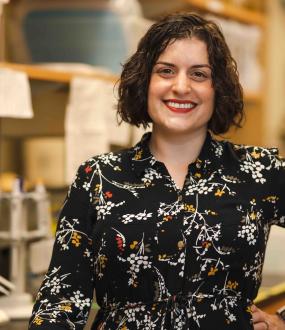Overall, this project focused specifically on SDG 4: Quality Education, to ensure inclusive and equitable education for all; however there are other SDG's that fall under this umbrella, where the interconnectedness of the SDG's came to light through researching and discussions within the classes themselves, as well as in laboratory assignments, namely: SDG 6: Clean Water and Sanitation, SDG 3: Health and Well-Being, and SDG 13: Climate Action. Curriculum changes to laboratory assignments in class, as well as the addition of a field trip, were included to the newly devised curriculum to facilitate learning about the various SDG's. Ms. Ellis and her partner, Dr. Jennifer Glass, specifically put focus in their classes on water contamination cases in the United States as a poster based, art-included project; as well as the inclusion of a new laboratory assignment about water contamination in Atlanta, GA with combined sewer overflow systems and learning about the widespread contamination of PFAS (poly-fluoroalkyl substances). Ms. Ellis also conducted a field trip with the help of EAS faculty Dr. Mike Porter to allow students to learn how to test samples from the field.
There were two sections where adjustments were made in this project. The first was within designing the curriculum, the second had to do with the field trip. While designing the curriculum, Ms. Ellis and Dr. Glass had to take a step back from the more linearized and singular path of instructional content, and instead opted to focus on more of a hands-on approach to Sustainability Education through experiential pedagogy/learning in which learning comes through experience or by 'doing'. These adjustments were in regard to the dates that were originally proposed. This was for logistical purposes and the ordering of a tour bus and laboratory supplies to ship to campus and pick up the students who participated on Monday, October 23rd. Ms. Ellis aided by Dr. Porter traveled to one location with the students. Originally, the plan was to travel to two locations for water sampling, but was cut down to one location due to time constraints. They utilized the first site to test water samples at the Cochran Shoals Trail, at the Chattahoochee River in Atlanta, Georgia, which is approximately a 15-20 minute drive from campus. The students tested the waters for ammonia, chloride, chromium, copper, nitrate, pH, phosphate, lead, and PFAS (poly-fluoroalkyl substances). Ms. Ellis has originally planned to have students do E. coli samples of the river as well, however, the equipment necessary to test that were backordered.
There were two sections where adjustments were made in this project. The first was within designing the curriculum, the second had to do with the field trip. While designing the curriculum, Ms. Ellis and Dr. Glass had to take a step back from the more linearized and singular path of instructional content, and instead opted to focus on more of a hands-on approach to Sustainability Education through experiential pedagogy/learning in which learning comes through experience or by 'doing'. These adjustments were in regard to the dates that were originally proposed. This was for logistical purposes and the ordering of a tour bus and laboratory supplies to ship to campus and pick up the students who participated on Monday, October 23rd. Ms. Ellis aided by Dr. Porter traveled to one location with the students. Originally, the plan was to travel to two locations for water sampling, but was cut down to one location due to time constraints. They utilized the first site to test water samples at the Cochran Shoals Trail, at the Chattahoochee River in Atlanta, Georgia, which is approximately a 15-20 minute drive from campus. The students tested the waters for ammonia, chloride, chromium, copper, nitrate, pH, phosphate, lead, and PFAS (poly-fluoroalkyl substances). Ms. Ellis has originally planned to have students do E. coli samples of the river as well, however, the equipment necessary to test that were backordered.

"I've learned about the pedagogical approaches we should be enacting between the intersectionality between more linearized, and standardized curriculum to include more place-based education, art modalities, and more concentric ecology educational backing for students to get a better handle on their own community needs, as well as Atlanta and Georgia Tech history surrounding sustainability-based educational and infrastructure efforts. It is also important in the future to consider relational pedagogical approaches, where there is more autonomy for students and faculty to work together towards implementing the most impactful and memorable experiences for freshman/incoming students to the School of Earth and Atmospheric Sciences."